Reflections on mental health and parenting
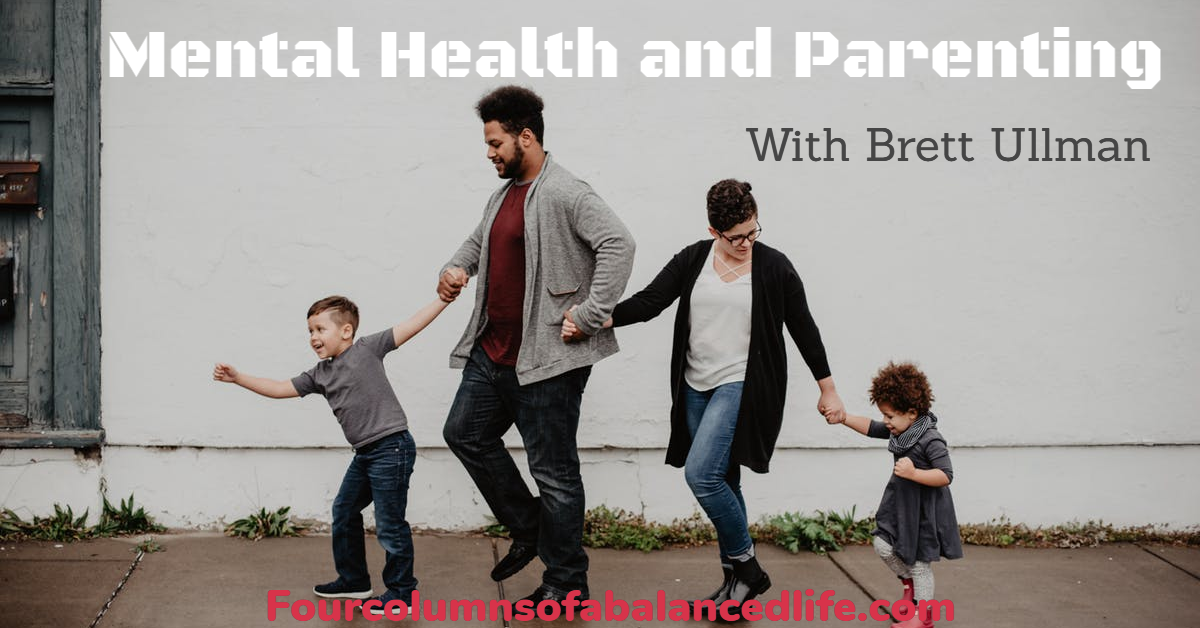
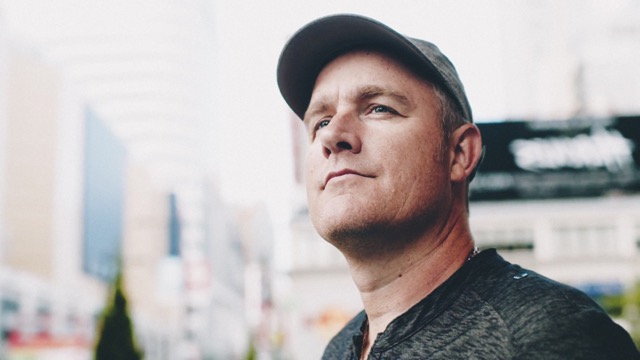
Parenting has taken on a whole new meaning during Covid 19.
Parents, caregivers, and children across the country are facing challenges and have to constantly pivot during the lockdown.
Focus on creating quality time and make sure your children are connected with family, friends, and neighbors through social media, chats, phones, and email.
Go on walks with your children while maintaining a safe distance.
Listen to understand your children, focus on their positive behavior and be a role model.
I talk to Brett about mental health and parenting.
Brett Ullman travels North America speaking to teens, young adults, leaders, and parents on topics including sexuality, mental health, men, dating, and media. Brett’s seminars engage and challenge attendees to try and connect our ancient faith with the modern culture we live in. Participants are inspired to reflect on what we know, what we believe, and how our faith ought to serve as the lens through which we view and engage in tough conversations in our society today.
Husband to Dawn and father of Bennett and Zoe, Brett and his family make their home in Ajax, Ontario where Brett leads and directs Worlds Apart, a charity focused on empowering individuals to re-align their lives with Biblical core values often muddled by media but central to Christian living.
Brett was a teacher with the Toronto District School Board for 10 years before moving into speaking full-time back in 2005. Brett has a Master’s degree in Evangelism and Leadership from Wheaton Graduate School in Chicago and is also a graduate of the Arrow Leadership Program. He and his family are members of Sanctus Church in Ajax since 2004. I catch up with Brett to talk about mental health and parenting.
Brett, please tell my audience a little about you?
My name is Brett Ullman. My wife (Dawn) and I live in Ajax, Ontario with our 2 teenagers Zoe (16) and Ben (15). I was a teacher with the TDSB (Toronto District School Board) for 10 years before leaving teaching 13 years ago to speak full-time. My speaking had started the year I began teaching and had grown to the point where I was teaching full-time and speaking 45 dates a year across Canada and the US. I speak on current issues from parenting, mental health, dating, media, faith, sex, men, and pornography.
I have a 14-year daughter, what is the best advice you can give me?
There is a quote from the book “Trophy Child” from Ted Cunningham that says “They will not be with me forever so I will prepare them accordingly.” This would be my best advice … prepare your daughter for life, don’t protect her from life. We seem to see an epidemic of over-parenting (which is rooted in fear-based parenting) throughout our society. If 4 years from now she heads away for school she better be ready to deal with everything from good online digital citizenship, dealing with sex and pornography, dealing with money, all aspects of dating, etc.
As a side point, I would say go and tell her that you love her. I am blown away on an ongoing basis by how many young girls tell me their dad has never told them he loved her.
I would also remind her often that you are there for her, not against her. That we as parents want the best for our kids and we are in their corner in life is a huge deal. This also means that we are still for them even when they mess up. Our kids need to know that we love them “forever and always” no matter what happens. This is unconditional love.
In the last decade, we as a society have been talking about mental health. What can we as parents do if our kid is struggling?
If I am in a room of students and/or parents and ask who knows someone who struggles with mental health, there is usually not a hand that does not go up. It is affecting all of us as a modern culture today. As someone who had a breakdown back in 2012 from speaking close to 300 speaking dates a year to pay for my Master’s degree, I was taking down in Chicago I understand first-hand the … what word do I use … struggle that those of us with mental health struggles face within the church today. One of the issues is that we allow people with cancer, diabetes, and other illnesses to follow a path to healing using best practices (doctors, medications, etc) but tell someone struggling with mental health it must be a spiritual issue. I have an entire talk on this called the Walking Wounded. Let me give you the 2 min summary.
If you or your kids are struggling with mental health you need to attack it in 3 ways:
- Body – go to your family doctor. Get blood work, and a physical done and see if there is anything physically wrong with you. You then need to take care of your body by eating better, sleeping more, and doing daily exercise. Some of the struggles we have are just from our living unsustainable lives. We need to take back control of what we can.
- Mind – go see a counselor and get some strategies to help you in your journey.
- Soul – Now this is the one that gets vast debate. I would say that our faith is (for the most part) not the answer in the journey but is the thing that sustains us in the journey no matter the outcome. Talk to pastors, prayer teams, small groups, and other people and allow them into your journey as well.
How are sexuality, media, and dating related?
I put them all under an umbrella I call a Christian Sexual Ethic or a Biblical worldview of healthy sexuality. If you have a correct ethic or worldview on this, it will affect all aspects of how we view sexuality in our lives. This affects what we do in relationships, what we do online, and the type of media we put into our lives.
Give me some practical examples as to how we can connect an ancient faith to our fast-paced modern culture?
I think it starts with a Biblical Worldview. Your Worldview shapes your values, and then your values shape your actions, what you actually do in life. I have been talking about spiritual disciplines for 15 years in my talks. These are the primary spiritual formation building blocks of our faith. Reading, praying, fasting, giving, volunteering, etc. are the foundations of our faith. I just finished a chapter on this for my new book so here is a shortlist of a few books to get you started in this area:
- Dallas Willard: The Spirit of the Disciplines: Understanding How God Changes Lives
- Richard J. Foster: Celebration of Discipline: The Path to Spiritual Growth
- Nathan Foster: The Making of an Ordinary Saint
- Patrick M. Morley: A Man’s Guide to the Spiritual Disciplines: 12 Habits to Strengthen Your Walk with Christ
- Ken Shigematsu: God in My Everything: How an Ancient Rhythm Helps Busy People Enjoy God
- Gary Thomas: Sacred Pathways
- Ruth R. Barton: Sacred Rhythms: Arranging our lives for Spiritual Transformation
Give me some practical tips on parenting and how to communicate with our kids on taboo topics?
The author Henry Cloud says we need to “Enter the danger.” We need not shy away from the tough stuff but lean into the conversations.
One thing that is really important here is that if you want to be able to speak to your kids on tough topics, you have to have relational influence in their lives. This is not something that you get because you are a parent, it is something you have to earn. When your kids are born, you have positional influence as you are the parent, and they are the kid. As they get older this fades away, and you must have relational influence. You build this day by day as your kids are growing up by being involved in their lives, family dinners, family vacations, family meetings, talks on the couch, game night, movie night, laughing and crying with your kids, encouraging them, etc.
Back to the tough topics use people around you. If you do not know what to say about a particular topic spend some time searching online, talk to your pastors and leaders, talk to parents of kids who are older than yours, read books on this topic, spend time on YouTube and searching Ted talks for great content. My website (www.brettullman.com) is filled with resources like this. My blog has conversations on all of these tough topics and the best links to other resources are all posted.
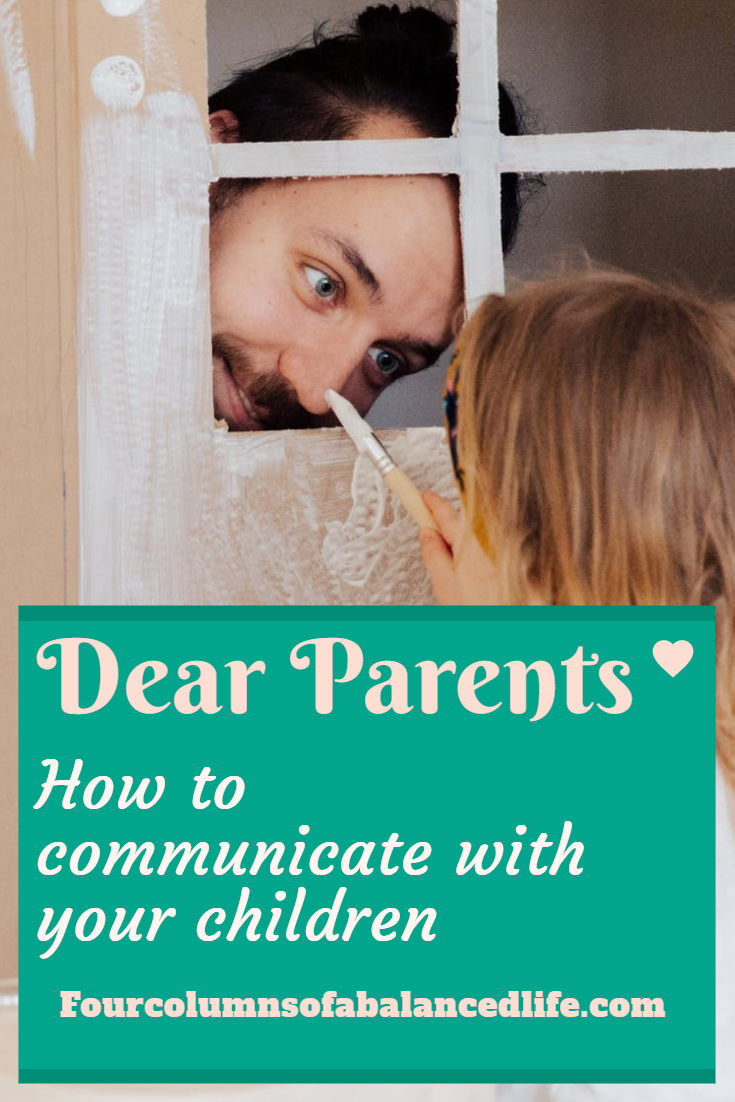
Talk to my female audience and help them in the dating world and how they need to navigate it?
I might start with a younger audience and say you don’t need to rush into dating in Grade 5-11. It will add a lot of heartaches, and the real question you are going to have to answer is what do you do sexually in these relationships as there is not much else that will be different from a good friend and dating other than that.
The other side of that coin is said to people who are out of High School and challenging them actually to date. We have a problem I see today where people are just not dating.
An important question to ask is not whether they like you, but whether they are worth you’re like.
Let me explain this better. It is great they like you, but does it matter? Are they the right person for you? Do you also like them? Do you have anything in common etc.? You don’t need to date someone just because they like you. You have a choice whether to like them back (in a dating way) or just stay friends.
What are some questions we need to ask ourselves before getting married?
The most viewed blog on my site with over 12,600 views is 80+ questions you need to ask when you are dating. Lots of questions to ask before you ever get engaged and married. Just a few good ones would be:
– What behavior is appropriate for those who are going to practice sexual abstinence before marriage
– Are you a non-practicing Christian? What does the Christian faith mean to you?
– Do you want any? 1? 2? 5?
– What kind of home do you want your children to grow up in? Values? Rules?
– What will you do? Where will you live? What comes with the job you have chosen? Travel?
You can use my blog as a start and then add any other questions you have. The point is to ask these before you get serious. If you want to have kids and they do not this is a massive red flag that your relationship might not be right. If they’re going to move to another place in the country and you want to live near your family and friends, it might be another red flag.
How important is communication in the family?
It is paramount. I am a huge fan of family dinners, family meetings, family vacations, etc. The problem we see today is peer attachment without parental attachment. This is seen in Leonard Sax’s’ book The Collapse of Parenting. Our kids are looking for unconditional love and acceptance from their peers which is just something they are not able to give. Our kids need a strong, secure attachment (bond) with us as parents, only then can they head out into the world and bond with their peers.
We as parents need to make sure that we work at good communication. No technology at the dinner table. Phones are on airplane mode and not on silent. People need to look at each other in the eye when they are talking. This problem of partial attention is getting worse in life.
We also need to have open communication on the expectations of our kids around the house. Clear, agreed on boundaries and expectations for everything from chores to curfew.
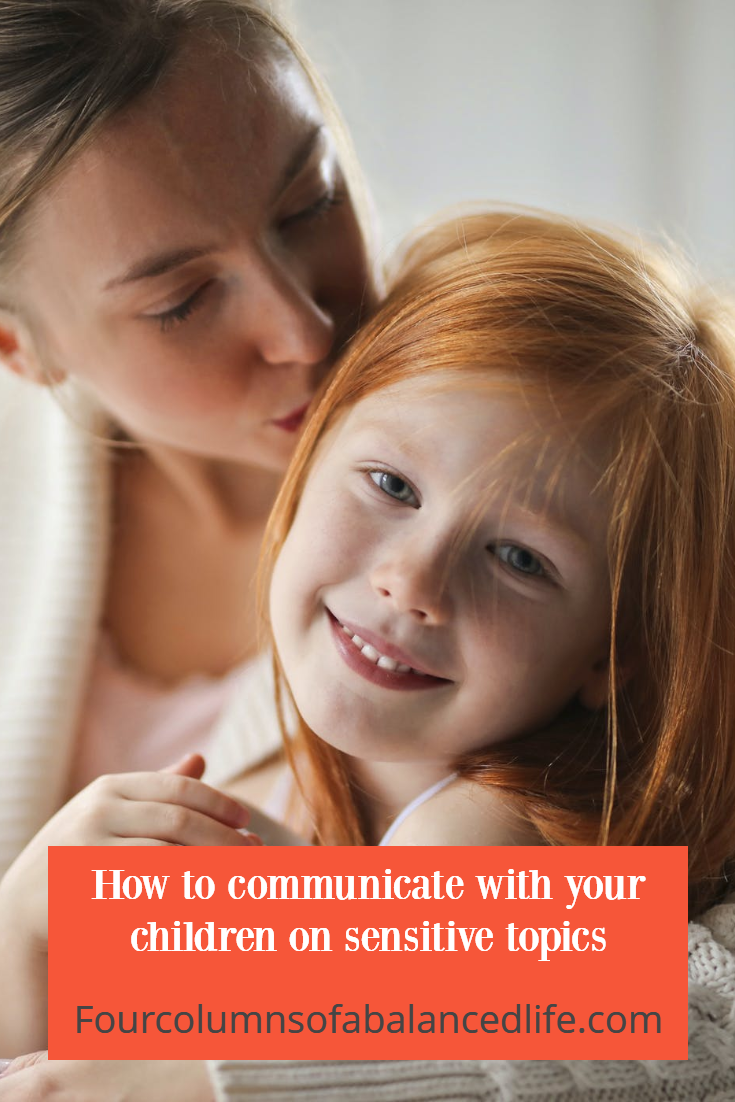
How do you balance faith family finance and food in this busy world?
I think the first thought here is just to be conscious that you want to live a balanced, sustainable life. I am presently reading “The Ripple Effect” by Greg Wells. The bi-line is:
Sleep better
Eat better
Move better
Think better
So love this. Many years ago, I heard the analogy of the jar with the different size rocks. If you put in the sand and small stones first the large rocks will not fit in. But, if you put in the large rocks, then small stones, then the sand they will all fit. It is the same in our lives. Plan your life to fit in the large rocks first (exercise, sleep, diet, faith etc.), then put in the smaller stones (shopping, cleaning, volunteering) When all of these things are done you are left to put in the sand of your life (TV, social media, video games, etc).
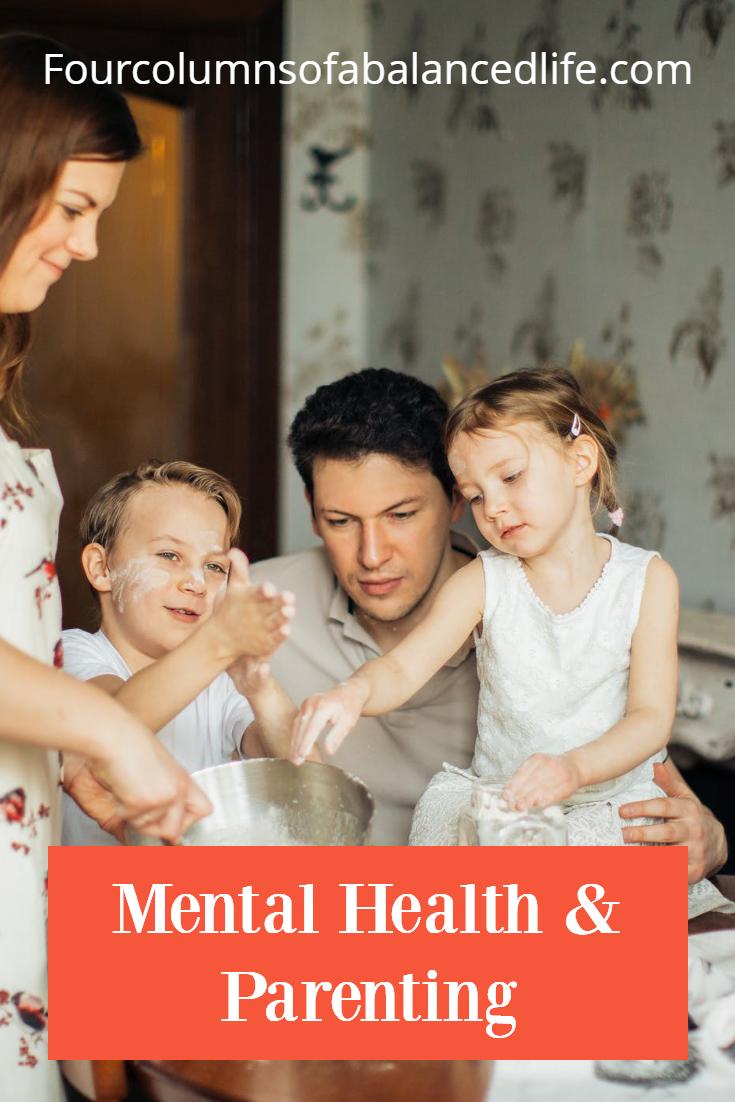

Brett really gives you food for thought